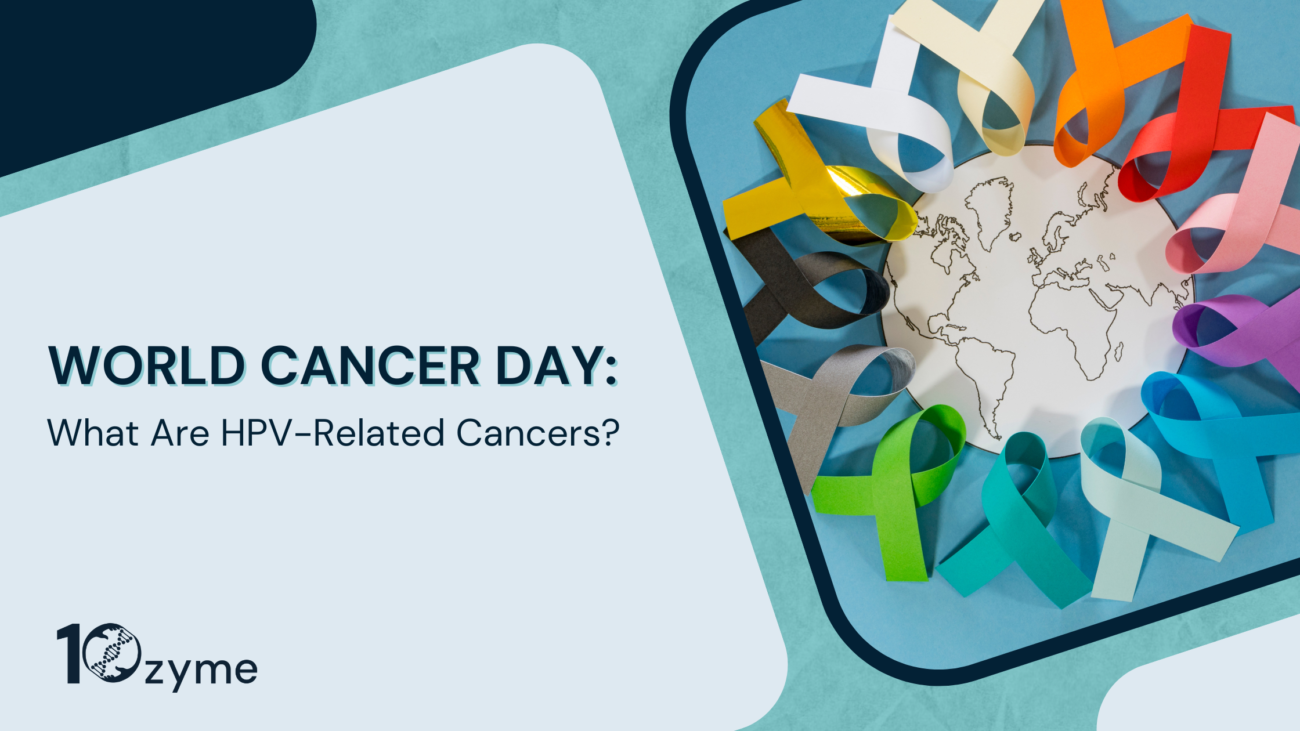The Power of Words: Reframing the Conversation Around Cancer
Language shapes our perception of the world. It can empower, uplift, or inadvertently cause harm. This is especially true when discussing sensitive topics, such as cancer – a topic that is both incredibly important and highly relevant, especially considering the recent news related to cancer and the UK’s royal family. For decades, cancer has been framed as a ‘battle’ or a ‘war’ to be fought; media headlines depict patients as ‘warriors’ or call them ‘survivors’ for those who ‘won’ their fight. However, a growing body of research and personal experiences suggest that this language might be misguided and biased, and in fact can lead to damaging stereotypes for those affected.
The battleground mentality: Why it doesn’t work
Military metaphors can be really alienating for many patients with cancer. A 2019 poll, by Macmillan Cancer Support1, revealed that a significant portion of people found that certain terms commonly used to describe individuals living with cancer, such as ‘fighter’ ‘warrior’ ‘brave’ or ‘hero’ to be inappropriate and over-pressurising; instead, they usually preferred clear, factual language and accurate medical terminology. Equating cancer with a war implies blame – that somehow the patient is responsible for their own illness. This can be demoralising, especially for those facing aggressive treatment or poor outcomes.
A commonly used word to describe people with cancer is the term ‘survivor’, which as many might agree is quite blunt and thought-provoking. While it can initially appear innocent and positive, ‘survivor’ is part of a language often associated with the battlefield. Some people may accept this label, however others may find it uncomfortable and even inappropriate. Therefore, one must consider using alternative ‘neutral’ or subtle terms that don’t evoke such negative emotions or thoughts.
Furthermore, the ‘war’ narrative creates unrealistic expectations. Cancer is a complex disease with a wide range of outcomes. Placing exclusive emphasis on achieving ‘victory’ or ‘success’ against cancer overlooks the harsh reality that numerous individuals may face when they must cope with, handle, or tragically succumb to the disease. This emphasises the importance of acknowledging the diverse experiences and outcomes associated with cancer beyond simply ‘winning’ against it.
Beyond the battlefield: A more compassionate language
There’s a growing movement aimed at redefining how we talk about cancer. Communication about cancer is complex, and healthcare professionals must navigate multiple factors to deliver information effectively2. Below are several suggestions of a more appropriate and compassionate type of language to be used for describing cancer and those affected by it:
Focus on facts – An accurate description of the diagnosis, treatment, and prognosis is crucial and effective, for example, using a more precise language instead of saying ‘the big C’ to describe cancer which can reinforce feelings of fear or misconception. Therefore, being concise in terms of giving a description based on the cancer location within the body, for example ‘cervical cancer’ ‘breast cancer’ or ‘bowel cancer’, will help enable the person to prioritise their health and encourages better sense of control.
Person-first language – Instead of using statements such as “cancer patient” use “person with cancer”. This emphasises the individuality or human aspect behind the cancer diagnosis.
Empathy over judgement – Steer clear of certain phrases such as ‘lost the battle’ or ‘cancer-stricken’. Instead, use empathetic language that offers a sense of support and understanding.
Avoiding war metaphors – This includes avoiding the use of certain terms such as ‘battle’ ‘survivor’ ‘fight’ or ‘brave’ which can lead to feelings of alienation, frustration, and hopelessness for the affected individual, and can actually do more harm than good.
The cancer brand: Reframing perception
The image problem often linked with cancer goes beyond individual conversations. Cancer carries a powerful label and is even thought of having its own unique ‘brand’, which evokes a set of significant associations that are clearly very negative. A recent study conducted by Ogilvy Health found that cancer can cause even more disruption to life compared to the loss of a loved one3.
Additionally, the extreme fear that is associated with cancer can in fact become a barrier that can prevent many people from undergoing potentially life-saving diagnostic tests and screening, which are crucial in the early detection of cancers, therefore resulting in poorer health outcomes. Therefore, reframing the language we use to talk about cancer is crucial, whether it is with people in general, or with those that have been diagnosed with cancer, as well as their friends and family. We must use a different type of language that helps provide clarity, guidance, and support instead of creating the familiar ‘fear factor’ response.
Language matters: The power of positive framing
Changing the way we speak about cancer is very important, certainly for people with cancer and their caregivers4. In today’s world, advances in the areas of scientific research, healthcare, and technology means that we have the tools, treatments, and therapeutics for effective cancer management compared to before, and so our language needs to reflect that.
Healthcare professionals must use more direct language with their patients. Words such as ‘hope’ can be replaced with more concrete terms that reflect the advancements in treatment, with more focus on current capabilities and knowledge. Similarly, cancer language that relies on war metaphors including the terms ‘battle’ ‘fighter’ and ‘survivor’ should be avoided whenever possible, focusing instead on the positive aspect relating to the management and living with cancer.
Cancer perception: Navigating the cancer journey
How we perceive cancer is not solely influenced by the type of language we hear or use, but also by our mindset that shapes this perception. Victoria Walsh, a health coach who had been previously diagnosed with cancer, offers valuable insights on reframing our perspective on a cancer diagnosis5. Below are several tips on how to embrace a more positive outlook after finding out about cancer:
Thinking of cancer as a manageable condition – Maintaining a positive mindset by imagining cancer as being a ‘regular’ manageable condition like diabetes or heart disease, instead of thinking of it as a death sentence, can improve the overall experience with cancer while receiving the appropriate management.
Being aware of the importance of lifestyle – While this may not always be the case, some types of cancer are linked to lifestyle choices. Reflecting on these factors and making positive changes to daily habits including diet, physical exercise, and stress management, can contribute to an improved sense of control, potentially enhancing the cancer journey and overall health.
Focusing on proactive prevention – Regardless of the stage of cancer, prevention by adopting healthy habits remains extremely important in helping reduce the cancer spread and improve long-term outcomes.
Empowering oneself through choice – One must not be a passive participant in his/ her own healthcare. Instead, there must be an active role to play in one’s own day-to-day care and treatment decisions.
Using cancer as a catalyst for growth – A cancer diagnosis is always a turning point in an individual’s life. However, instead of losing oneself in a sea of negative perceptions and possible outcomes, cancer should be viewed as an opportunity for personal growth where one can embrace new experiences and challenges.
Conclusion
In summary, effective communication is crucial, certainly when it relates to life-changing health conditions such as cancer. The way we talk about cancer really matters, however, words tend to be underestimated in terms of their power and the impact they can have. By adopting a more sensitive and effective approach to language, in addition to acknowledging the significant advancements in treatment, we can create a more hopeful and empowering environment for people living with cancer. By reframing the dialogue and adopting a more optimistic perspective, we can inspire empowerment for individuals with cancer, improve public perception, and pave the way for a brighter future in cancer care.
10zyme: Advancing women’s health
We’re developing a groundbreaking self-test with instant results to detect the main cause of cervical cancer: high-risk HPV. Detecting infections early prevents cancer ever developing.
By enabling self-testing, we aim to empower women, overcome stigma and anxiety, and help eliminate a disease killing hundreds of thousands a year globally. See our Education Section to find out more.
Please follow and support us on social media: LinkedIn, Instagram, and TikTok.
References:
- British Broadcasting Corporation (BBC). (2019). Cancer cliches to avoid: I’m not ‘brave’. (Online). Available at: https://www.bbc.com/news/health-47002578 [Accessed: 01/04/2024]
- National Cancer Institute (NIH). (2024). Communication in Cancer Care (PDQ®)–Health Professional Version. (Online). Available at: https://www.cancer.gov/about-cancer/coping/adjusting-to-cancer/communication-hp-pdq [Accessed: 02/04/2024]
- White-Sax, B. (2024). A Big C Shift: Rebranding cancer to reflect advances in oncology. (Online). Available at: https://www.prweek.com/article/1866501/big-c-shift-rebranding-cancer-reflect-advances-oncology [Accessed: 01/04/2024]
- Li, J. Luo, X. Cao, Q. Lin, Y. Xu, Y. Li, Q. (2020). Communication Needs of Cancer Patients and/or Caregivers: A Critical Literature Review. Journal of Oncology. 2020: 7432849. (Online). Available at: https://www.ncbi.nlm.nih.gov/pmc/articles/PMC7229568/ [Accessed: 02/04/2024]
- Walsh, V. (2024). Reframing Your Cancer Diagnosis – A Different Perspective. (Online). Available at: https://what-next.org/reframing-your-cancer-diagnosis-a-different-perspective/ [Accessed: 01/04/2024]




